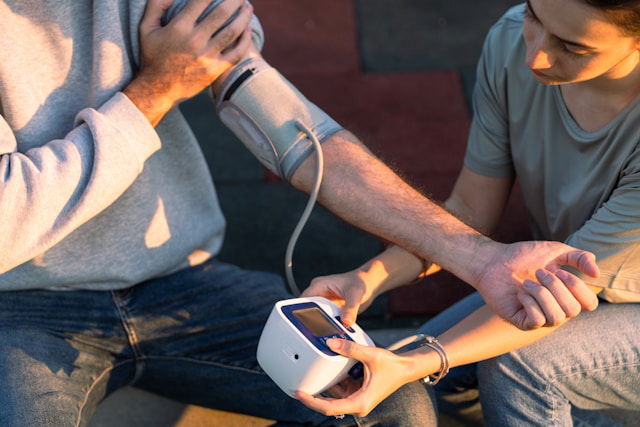
A new study from Columbia University has raised concerns about one of the most commonly used medications for high blood pressure. The research looked at two drugs—chlorthalidone and hydrochlorothiazide.
Both are diuretics, often called “water pills,” which help lower blood pressure by helping the body get rid of extra salt and water through urine.
Doctors have long believed that chlorthalidone is the better option because it stays in the body longer and may offer more lasting effects. In fact, current medical guidelines often recommend it over hydrochlorothiazide for this reason. However, the new study shows that this belief might need to be reconsidered.
Researchers reviewed 17 years of medical records from more than 730,000 patients being treated for high blood pressure.
They found that both chlorthalidone and hydrochlorothiazide work equally well to prevent major heart-related problems, like heart attacks, strokes, and heart failure. In other words, neither drug was better than the other at protecting the heart.
But there was a big difference in side effects. People who took chlorthalidone were much more likely to suffer from certain health problems. One of the most serious was low potassium levels, a condition known as hypokalemia.
Potassium is a mineral that helps control your heartbeat. When levels drop too low, it can cause dangerous heart rhythms and other serious issues. In the study, 6.3% of people taking chlorthalidone had this problem, compared to only 1.9% of people on hydrochlorothiazide.
Chlorthalidone also seemed to raise the risk of other problems, like low sodium levels (hyponatremia), which can cause confusion and kidney issues. There was also a higher chance of developing type 2 diabetes. Even when people took lower doses of chlorthalidone, the risks were still greater than with hydrochlorothiazide.
These results suggest that doctors should be more cautious when prescribing chlorthalidone. Patients using this drug may need regular blood tests to monitor potassium and sodium levels, and to check how well their kidneys are working.
This is especially important because problems with electrolytes like potassium and sodium can develop silently, without clear symptoms.
Some experts are now saying that the current guidelines should be updated to reflect these findings. They argue that hydrochlorothiazide may be a safer choice for many people, especially those who are at risk for kidney issues or diabetes.
If you are taking chlorthalidone, don’t stop without talking to your doctor. Stopping blood pressure medication suddenly can be dangerous. Instead, speak with your healthcare provider about your options and whether a different drug might be better for you.
High blood pressure is a serious condition that can lead to heart disease, stroke, and kidney failure if left untreated. Medicines help, but they work best when combined with a healthy lifestyle. Eating a balanced diet, exercising regularly, reducing salt, and managing stress are all important steps in keeping blood pressure under control.
This study was published in JAMA Internal Medicine and led by Dr. George Hripcsak and his team. Their work adds to growing evidence that treatment plans for high blood pressure should focus not only on how well drugs work, but also on how safe they are.
If you care about high blood pressure, please read studies about what to eat and to avoid for high blood pressure, and 12 foods that lower blood pressure.
For more health information, please see recent studies about the connection between potato and high blood pressure, and how to eat your way to healthy blood pressure.
Copyright © 2025 Knowridge Science Report. All rights reserved.



